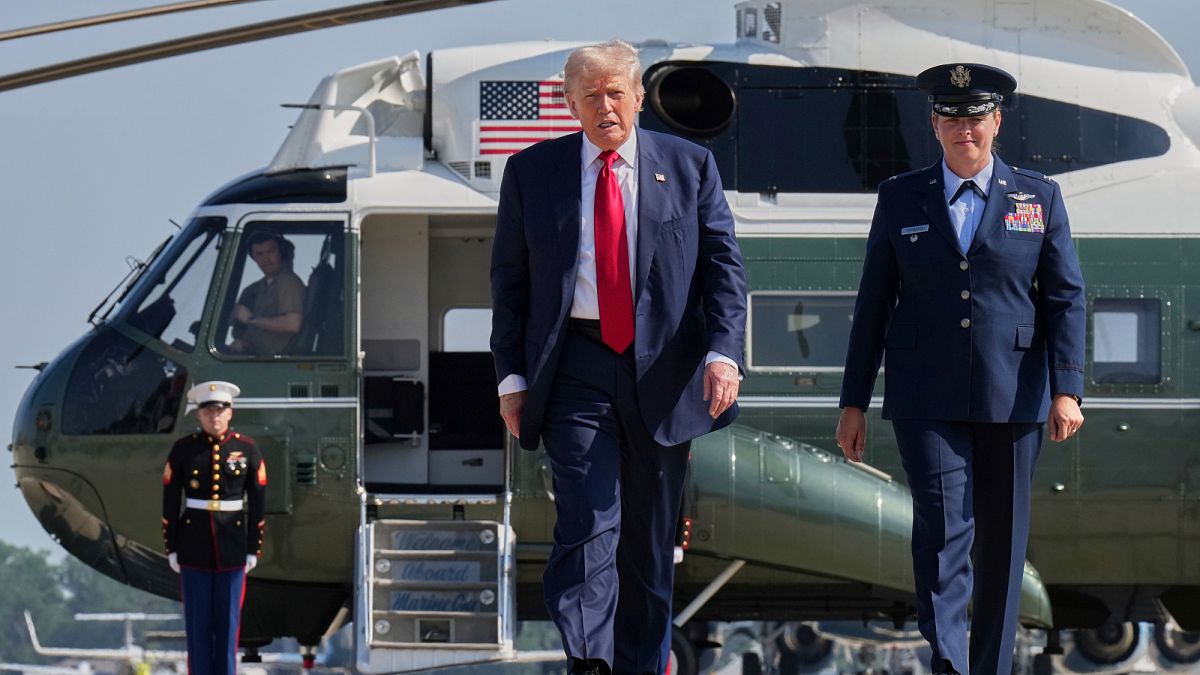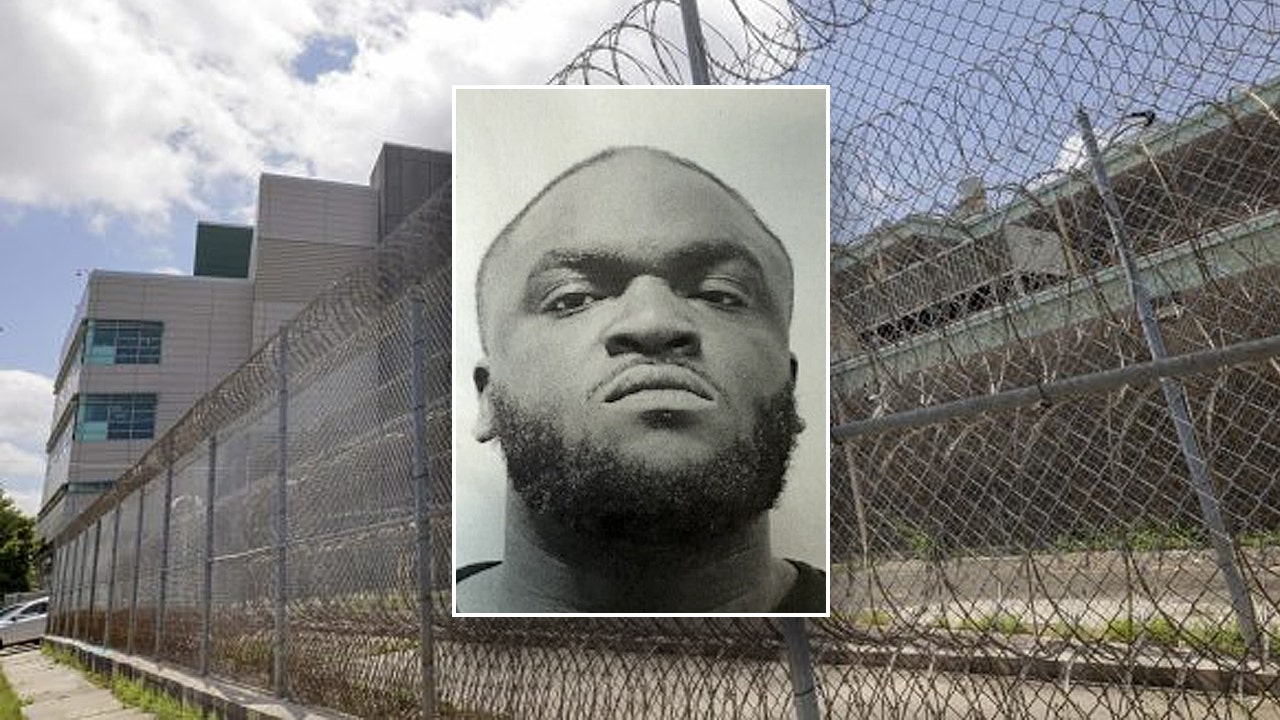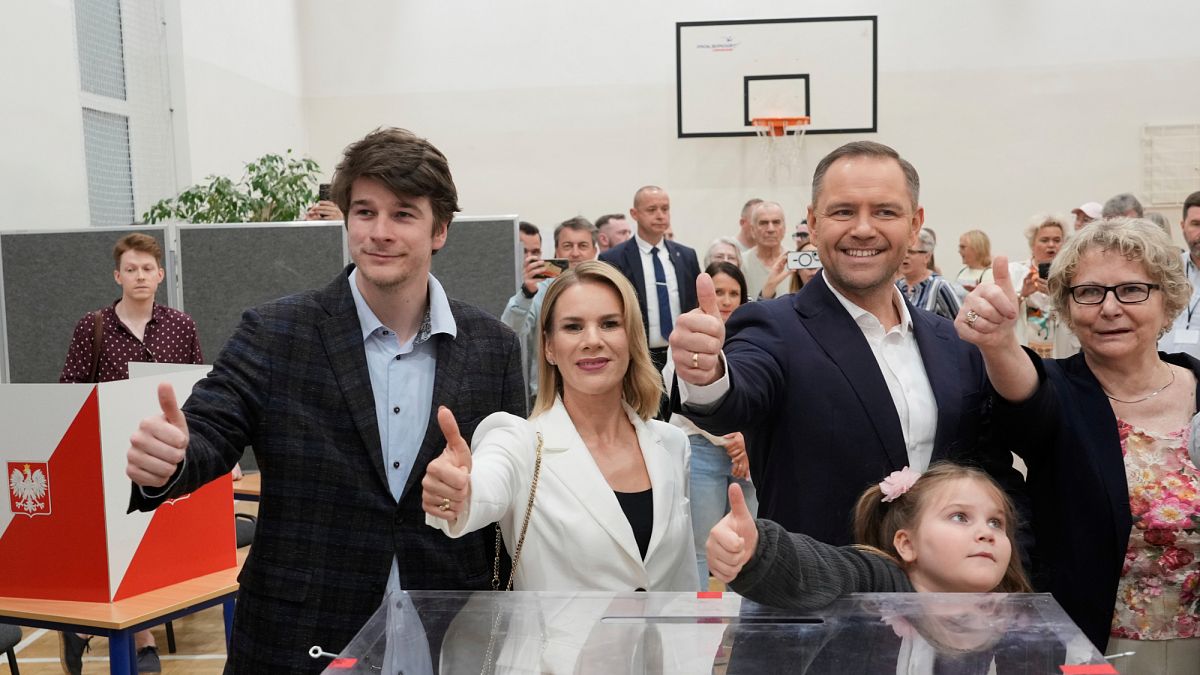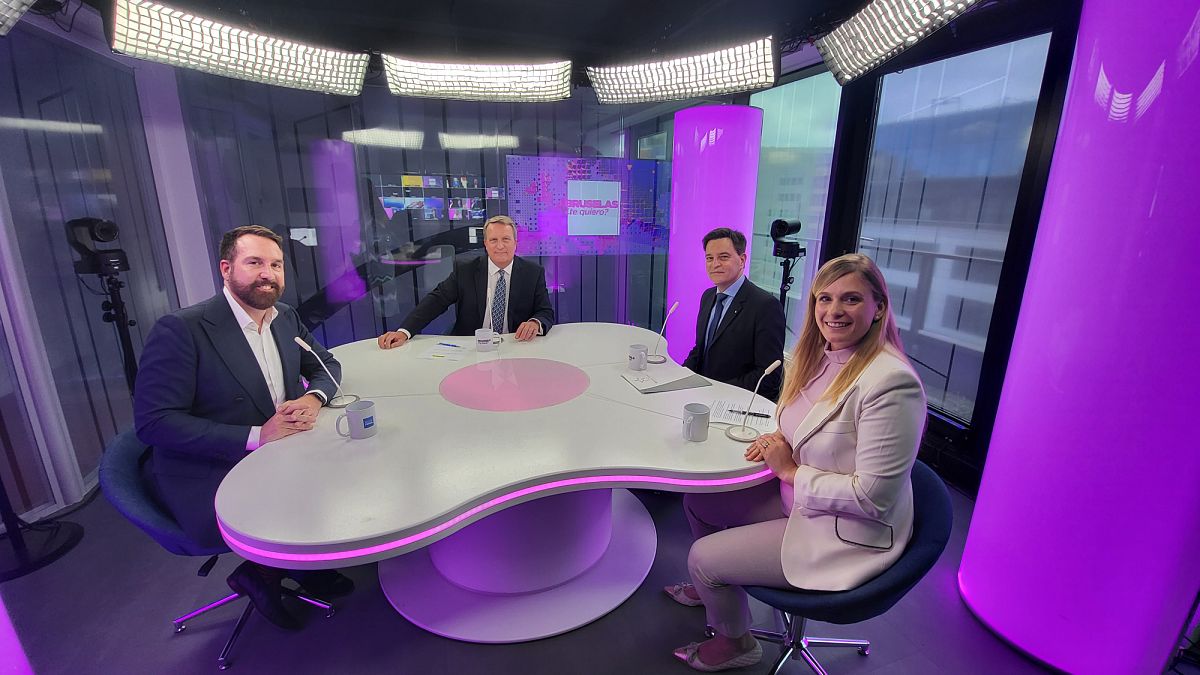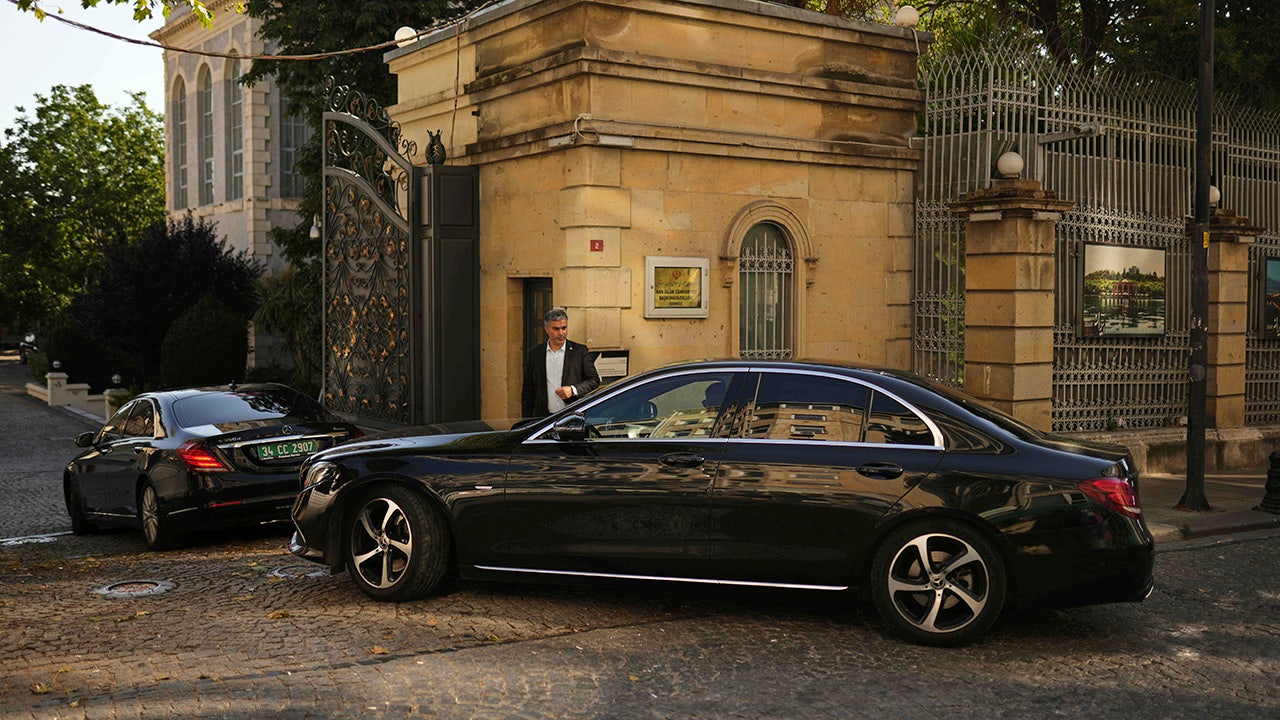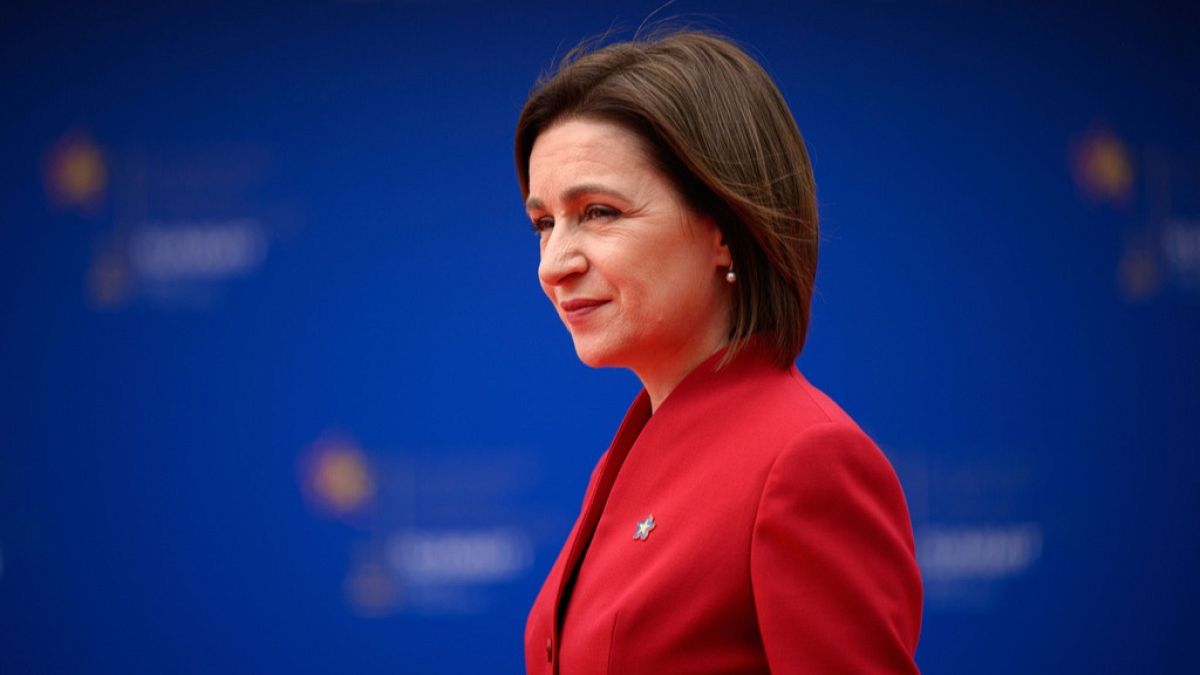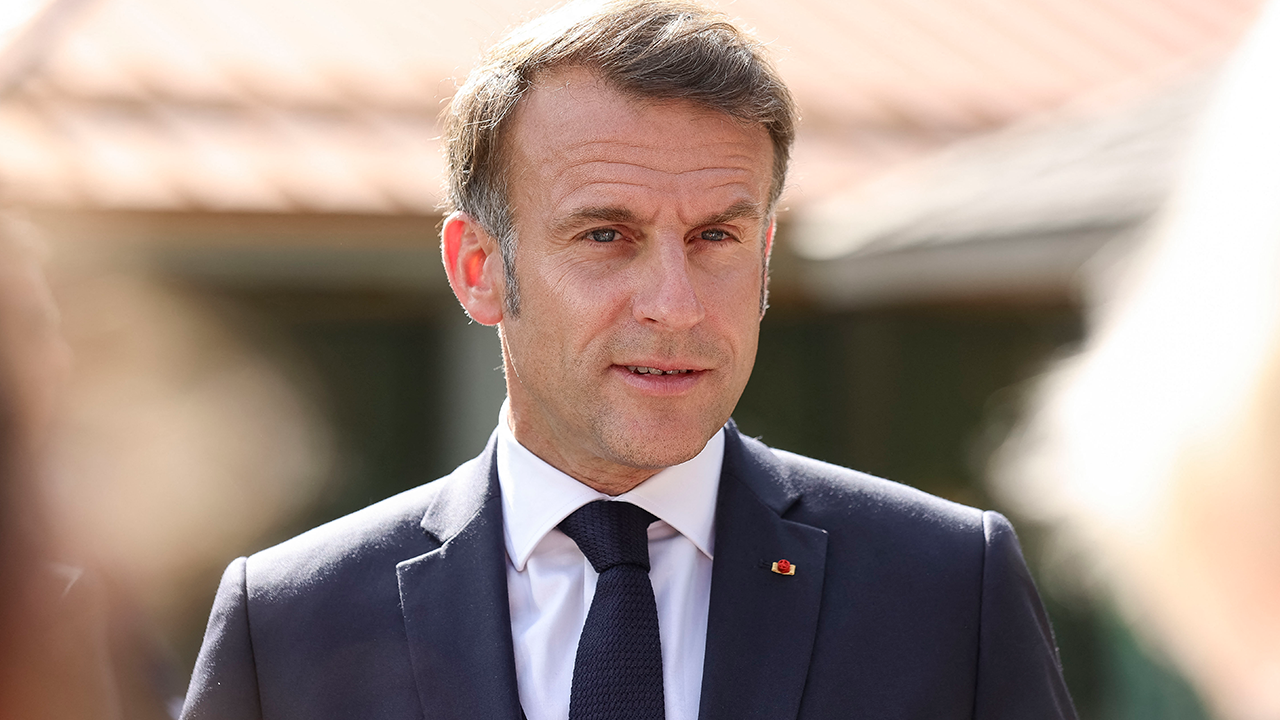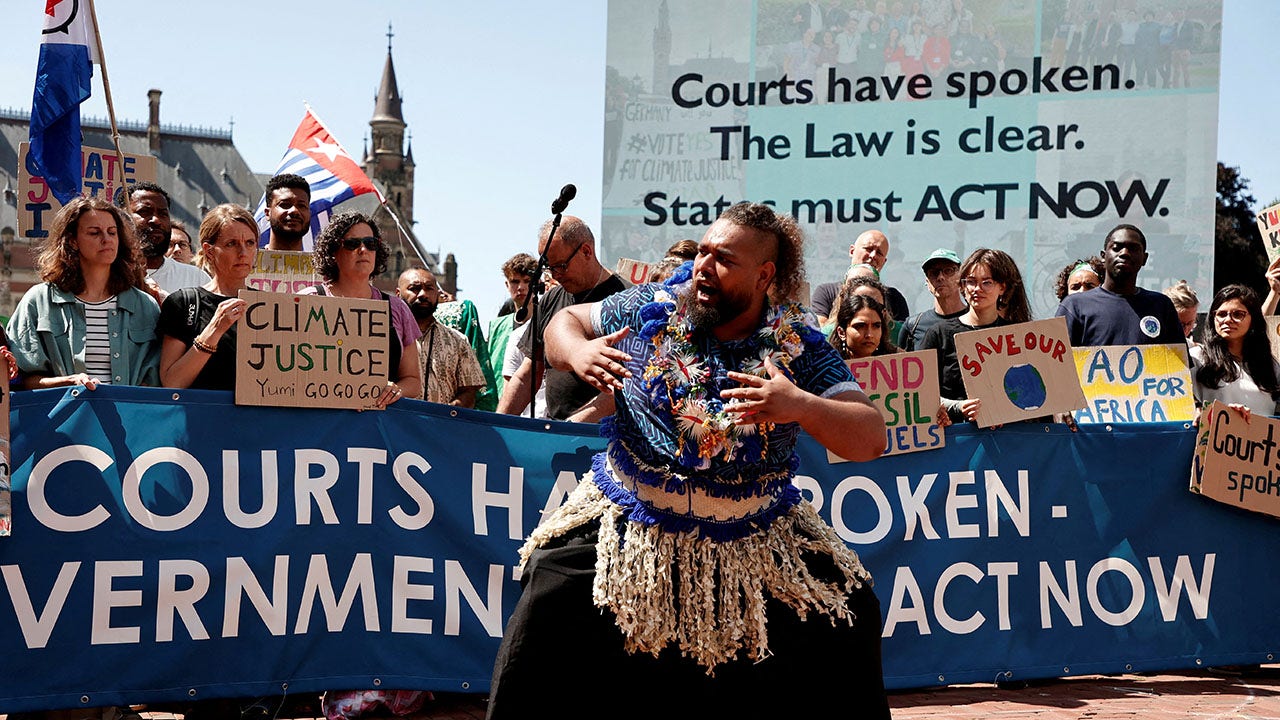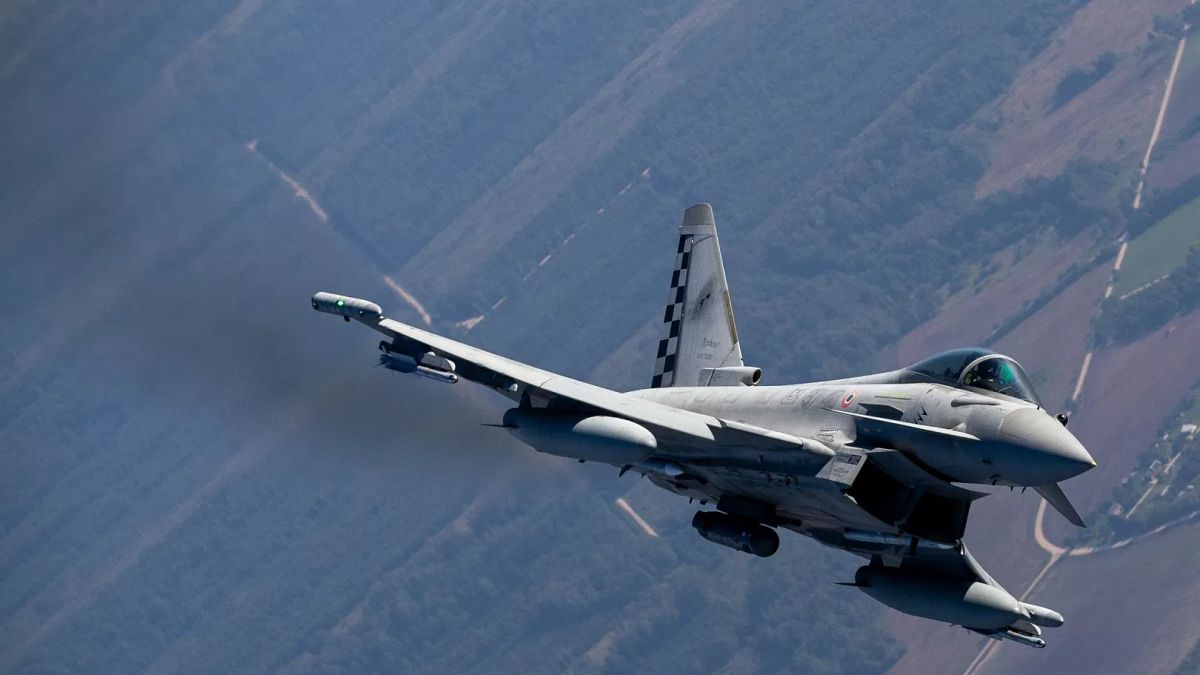Karol Nawrocki is set to become Poland’s next president after a tense race in the election runoff against liberal candidate Rafał Trzaskowski on Sunday.
The conservative politician has pledged to hinder Prime Minister Donald Tusk government’s centrist, pro-EU ambitions for the remainder of its term.
These are the most essential facts to know about Poland’s newly elected conservative president.
A Gdańsk native, Nawrocki earned a degree in history from the University of Gdańsk in 2008, followed by a PhD in 2013. He also holds an international MBA from the Gdańsk University of Technology, which he earned in 2023.
During his presidential campaign, Nawrocki’s critics questioned his role as head of the Institute of National Remembrance (IPN), an organisation tasked with investigating and prosecuting Nazi and communist crimes between 1917 and 1990, which gave him access to top state secrets, including those classified under special security provisions.
Nawrocki started working at the IPN in 2009. He took a break for four years, during which he served as director of the World War II Museum in Gdańsk. In 2021, he returned to the IPN as president.
While at the IPN, he passed the vetting procedure of the Internal Security Agency (ABW). In the final days of the campaign, a media report claimed that ABW agents initially gave Nawrocki a negative recommendation.
The assessment was ultimately overruled by the agency’s then-chief — a Law and Justice or PiS party appointee and adviser to now-former President Andrzej Duda. PiS argued the clearance was valid.
In 2024 he was put on a list of Polish nationals wanted by the Russian Interior Ministry due to his presence at the dismantling of the Red Army Gratitude Monument in Glubczyce in 2022.
Political views and opinions on economy
A candidate supported by the PiS, Nawrocki’s political views are described as conservative and right-wing.
During the election campaign, he opposed compulsory vaccinations for both adults and children. He has also opposed Ukraine’s membership in NATO and the European Union until outstanding bilateral issues with the neighbouring country are resolved.
Nawrocki’s election plan included, among other things, a pledge not to raise taxes and a reduction in VAT.
Other promises included the introduction of zero income tax relief for families with at least two children, tax-free inheritance, and the abolition of the Belka tax.
Nawrocki supports nuclear energy but maintains that, until Poland has its own nuclear power plant, coal should continue to be mined and used.
“I say a clear no to this. Until Poland achieves nuclear energy, Polish coal should be mined, fed into, and develop the Republic of Poland. Hands off Polish coal until we get to the atom,” he said at a rally in Pajęczno in March.
“By rejecting green ideology, green taxes, and the EU ETS, and through the extraction of Polish coal, we will finally start paying normal electricity prices,” he added.
Defence and conscription
Nawrocki advocated for voluntary conscription during his presidential campaign. During a presidential debate, he argued that Poland is not currently in a situation that should require forced conscription.
“I will be the president of a safe Poland in which conscription should be voluntary. It is necessary to build a strong, modern Polish army, at least 300,000 strong, with strong alliances, but it must remain voluntary, which is fundamental for me as well,” Nawrocki said.
At his speech in Pajęczno, he reiterated that he would seek to expand the army. “Poland will be safe when it is militarily secure and has at least a 300,000-strong Polish army and a million reservists. This is what I will lead up to and what I will achieve as the supreme commander of the armed forces,” Nawrocki said.
On 22 May, he signed a programme declaration prepared by the leader of the far-right Konfederacja or Confederation party, Sławomir Mentzen, consisting of eight demands.
Nawrocki has declared that as president he would not sign — among other things — laws restricting freedom of expression and access to weapons.
Read the full article here



